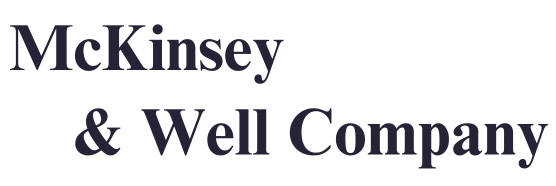Consumer Goods & Retailing
Cloud Retail Market By Solution (Supply Chain Management, Customer Management, Workforce Management, Reporting and Analytics, Data Security, Others), By Deployment Model (Public Cloud, Private Cloud, Hybrid Cloud), By Enterprise Size (Large Enterprises, S
Cloud Retail Market By Solution (Supply Chain Management, Customer Management, Workforce Management, Reporting and Analytics, Data Security, Others), By Deployment Model (Public Cloud, Private Cloud, Hybrid Cloud), By Enterprise Size (Large Enterprises, S
Couldn't load pickup availability
Cloud Retail Market By Solution (Supply Chain Management, Customer Management, Workforce Management, Reporting and Analytics, Data Security, Others), By Deployment Model (Public Cloud, Private Cloud, Hybrid Cloud), By Enterprise Size (Large Enterprises, Small and Medium-Sized Enterprises), By Service Model (Software as a Service (SaaS), Platform as Service (PaaS), Infrastructure as a Service (IaaS)): Global Opportunity Analysis and Industry Forecast, 2023-2032
The use of cloud computing technology in the retail sector is termed cloud retail. The services and solutions such as real-time inventory management, demand management, and real-time data from point of sale are included in the cloud retail. Growth in trend of customized services to the consumer such as availability of specialized products on demand, cost reduction, better management of the delivery network, loss prevention, and easiness of interaction with customers create the need for adoption of cloud retail. Possible downtime, security of the data, and cost of usage are primary deterrents of the cloud retail market.
The key factors that drive the growth of the cloud retail market include increase in focus on the omni-channel experience and cost-effective benefits of cloud products in retail. Omni-channel retailing describes a communication model that enables customers to interact with multiple sales and media channels. Omni-channel links all communication channels between the enterprise and the customers to create a single unified experience. According to a sales force study, 73% of shoppers opt for multiple channels during their shopping journeys. This drives the retailers to focus on enhancing the omni-channel experience. In addition, increase in adoption of multi-cloud architecture is considered as an important factor to boost the cloud retail market. However, increase in complexity and data security concerns are expected to hamper market growth. Integrating cloud solutions with existing on-premises systems and legacy software is often complex and requires significant effort. Retailers encounter compatibility issues, data migration challenges, and the need for custom integration solutions. Contrarily, retailers that prioritize sustainability by using green cloud solutions can improve their brand image and reputation. Environmentally conscious customers are expected to support and remain loyal to brands that demonstrate a commitment to sustainability. Moreover, sustainable cloud solutions often lead to improved energy efficiency and resource optimization, resulting in potential cost savings for retailers. Lower energy consumption and efficient resource allocation can translate into reduced operational expenses.
The cloud retail market is segmented on the basis of solution, deployment model, enterprise size, service model, and region. On the basis of solution, the market is categorized into supply chain management, customer management, workforce management, reporting and analytics, data security, and others. On the basis of deployment model, the market is divided into public cloud, private cloud, and hybrid cloud. On the basis of enterprise size, the market is bifurcated into large enterprises and small and medium-sized enterprises. On the basis of service model, it is divided into software as a service (SaaS), platform as service (PaaS), and infrastructure as a service (IaaS). On the basis of region, it is analyzed across North America, Europe, Asia-Pacific, and LAMEA.
The report analyzes the profiles of key players operating in the cloud retail market such as SAP SE, Fujitsu, Oracle, Infor Inc., Amazon Web Services, Inc., Cisco Systems, Inc., IBM, Epicor Software Corporation, Microsoft, and Google LLC. These players have adopted various strategies such as collaboration, acquisition, and product launch to increase their market penetration and strengthen their position in the cloud retail market.
Key Benefits for Stakeholders
The study provides in-depth analysis of the global cloud retail market along with the current & future trends to illustrate the imminent investment pockets.
Information about key drivers, restrains, & opportunities and their impact analysis on the global cloud retail market size is provided in the report.
Porter’s five forces analysis illustrates the potency of buyers and suppliers operating in the industry.
The quantitative analysis of the global cloud retail market from 2022 to 2032 is provided to determine the market potential.
Key Market Segments
By Service Model
Software as a Service (SaaS)
Platform as Service (PaaS)
Infrastructure as a Service (IaaS)
By Solution
Supply Chain Management
Customer Management
Workforce Management
Reporting and Analytics
Data Security
Others
By Deployment Model
Public Cloud
Private Cloud
Hybrid Cloud
By Enterprise Size
Large Enterprises
Small and Medium-Sized Enterprises
By Region
North America
U.S.
Canada
Europe
UK
Germany
France
Italy
Spain
Rest of Europe
Asia-Pacific
China
Japan
India
Australia
South Korea
Rest of Asia-Pacific
LAMEA
Latin America
Middle East
Africa
Key Market Players
SAP SE
Oracle Corporation
Cisco Systems, Inc.
IBM Corporation
Google LLC
Fujitsu
EPICOR SOFTWARE CORPORATION
Amazon Web Services, Inc.
Microsoft Corporation
Infor Inc.
Please Note: It will take 7-10 business days to complete the report upon order confirmation.


